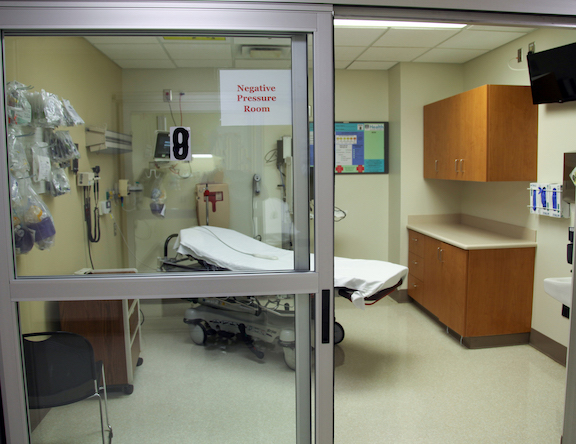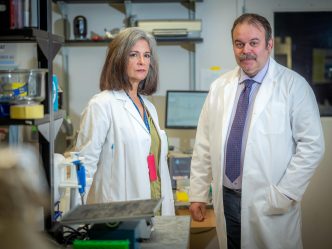On Monday, Augusta University Health System opened the region’s first emergency unit dedicated to treating COVID-19 patients needing critical care procedures such as intubations and resuscitations.
“When the COVID-19 outbreak was beginning, we had seven negative pressure rooms in the entire Emergency Department (ED),” said Dr. Richard Schwartz, chairman of the Department of Emergency Medicine at the Medical College of Georgia at Augusta University. “We renovated an area that was previously used for observation patients into a state-of-the-art critical care resuscitation area. These five critical care rooms along with adjacent 16 acute care rooms are all under negative pressure. The 21 negative pressure rooms create the safest environment for patients and staff.”
The negative pressure rooms minimize potential risk to patients and providers, but unlike a negative pressure unit, which keeps contaminated air from leaving the unit but doesn’t always prevent contaminated air from traveling within the unit, these rooms are individually pressurized to prevent cross-contamination between rooms.
“We are really in a unique situation at Augusta University,” he said. “We are effectively running two full-service separate emergency departments. One for respiratory patients at high risk for COVID-19 and the other for patients at low risk of COVID-19. We can prevent low-risk patients from coming into contact with high-risk patients.”
Prior to this change, some procedures had to be done in small rooms or rooms with no negative pressure. Intubating a patient (inserting a tube into the patient’s trachea) can be one of the riskiest procedures, and negative pressure prevents cross-contamination.
In addition to the establishment of a dedicated critical care unit for respiratory patients, the health system has created an additional 13 patient care beds in the emergency department that can be used for patient overflow during times of surge.
 Augusta University
Augusta University




